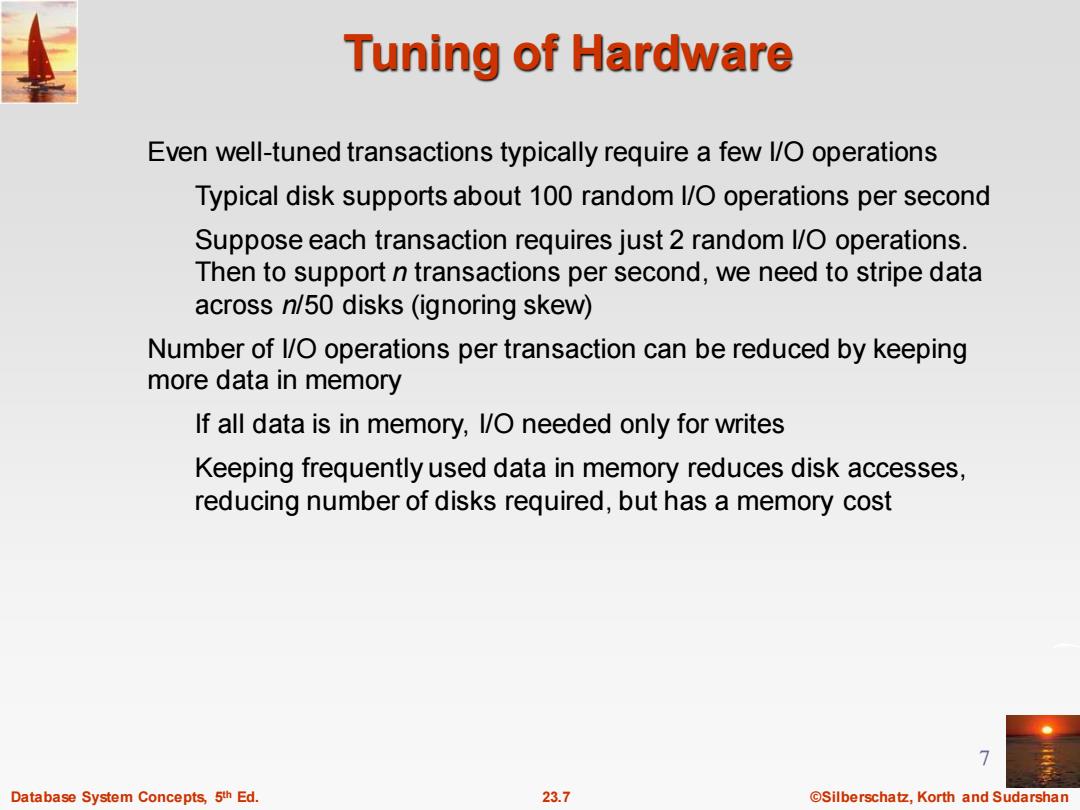正在加载图片...

Tuning of Hardware Even well-tuned transactions typically require a few I/O operations Typical disk supports about 100 random I/O operations per second Suppose each transaction requires just 2 random I/O operations. Then to support n transactions per second,we need to stripe data across n/50 disks(ignoring skew) Number of I/O operations per transaction can be reduced by keeping more data in memory If all data is in memory,I/O needed only for writes Keeping frequently used data in memory reduces disk accesses, reducing number of disks required,but has a memory cost Database System Concepts,5th Ed. 23.7 @Silberschatz,Korth and SudarshanDatabase System Concepts, 5 23.7 ©Silberschatz, Korth and Sudarshan th Ed. 7 Tuning of Hardware Even well-tuned transactions typically require a few I/O operations Typical disk supports about 100 random I/O operations per second Suppose each transaction requires just 2 random I/O operations. Then to support n transactions per second, we need to stripe data across n/50 disks (ignoring skew) Number of I/O operations per transaction can be reduced by keeping more data in memory If all data is in memory, I/O needed only for writes Keeping frequently used data in memory reduces disk accesses, reducing number of disks required, but has a memory cost